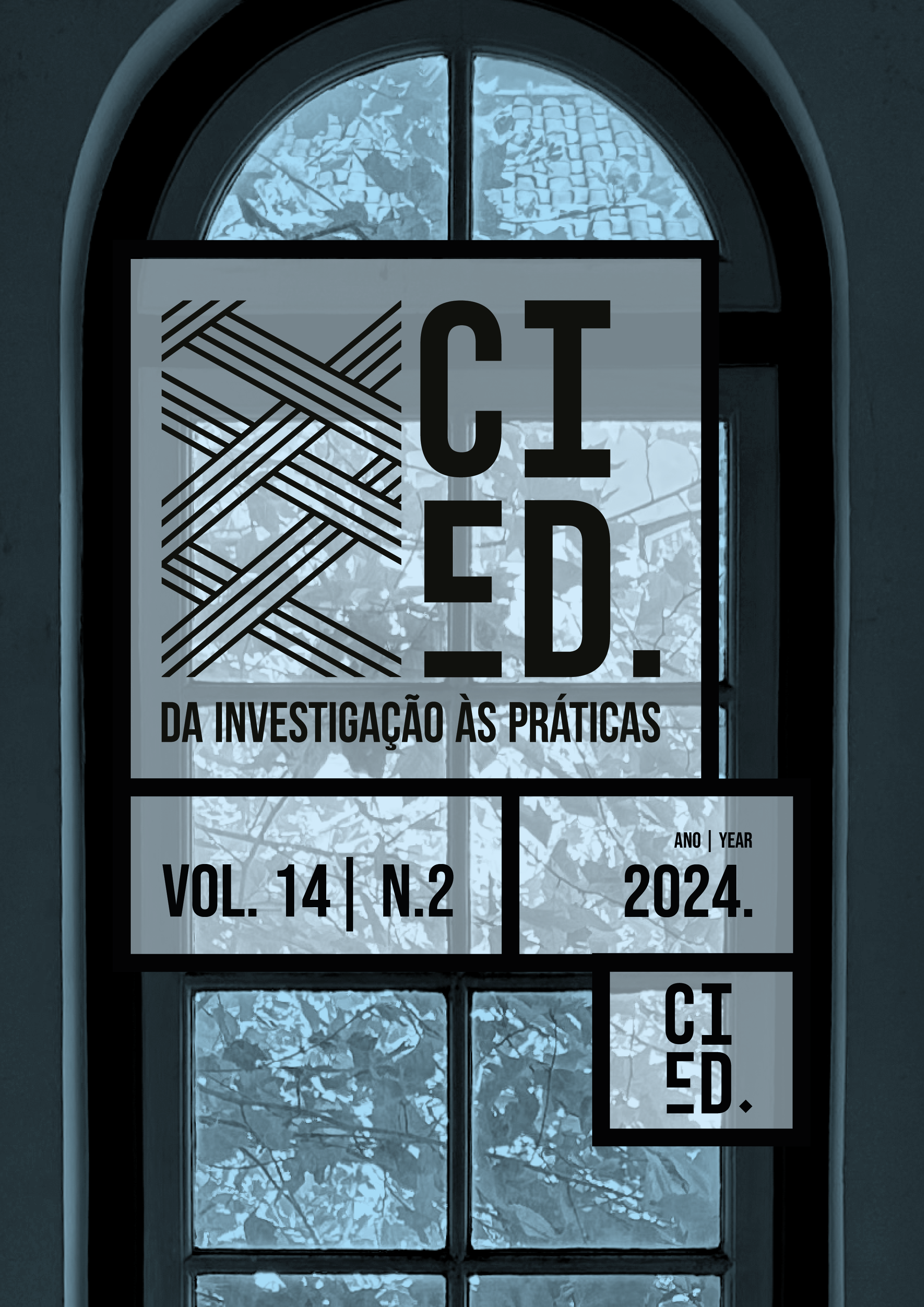Contexts, practices and concepts around Artistic and Cultural Mediation: research results developed by future professionals
DOI:
https://doi.org/10.25757/invep.v14i2.363Keywords:
Artistic and Cultural Mediation, Professionalization of Artistic and Cultural Mediators, Training in Artistic and Cultural MediationAbstract
This text seeks to contribute to the discussion around the professionalization and professionality of Artistic and Cultural Mediation (ACM) agents. The background for this discussion is based on theoretical references about professions, along with studies on artistic and cultural mediators. The analysis focuses on the training process developed within the scope of the degree in MAC at the ESELx-IPL, specifically in the Curricular Unit, Professionality and MAC, methodologically organized in two levels. In the first one, the curricular intentions of the UC are presented, within the framework of the course's training objectives. In the background, the research work carried out by the students, related to 4 academic years (between 2018/19 and 2021/22), is analyzed exploratoryly. The developed analysis allows knowing the questions and research problems chosen by the students, along with the broadening of knowledge about the profiles and professional practices in ACM, as well as the professional contexts. The exploratory analysis carried out allowed an approximation to issues related to the recognition and affirmation of ACM and (its) professionals, in different dimensions, concluding on the relevance of continuing the investigative practice in this scope, namely in the training of these professionals.
Downloads
References
Abbott, A. (1988). The system of professions. An essay on the division of expert labor. University of Chicago Press
Abbott, A. (1991). The order of professionalization. An empirical analysis. Work and occupations, 4, 355-384.
Bellini, A. & Maestripieri, L. (2018). Professions Within, Between and Beyond. Varieties of Professionalism in a Globalising World. Cambio, 8 (16), 5-14.
Bourdoncle, R. (1993). La professionnalisation des enseignants: les limites d’un mythe, Revue Française de Pédagogie, 105, 183-109.
Carapinheiro, G. & Rodrigues, M.L. (1998). Profissões: protagonismos e estratégias. In J.M. Viegas & A.F. Costa (orgs.), Portugal, que Modernidade?. Celta (147-164).
Carvalho, T., Santiago, R & Caria, T. (eds.) (2012). Grupos profissionais, profissionalismo e sociedade do conhecimento. Tendências, problemas e perspectivas. Edições Afrontamento.
Cruz, C. B., Vieira, N., & Vohlgemuth, L. (2021). Degree in Artistic and Cultural Mediation (ESELx – IPL): a critical analysis on the role of the mediator and mediation process in the Portuguese contexto, Da Investigação às Práticas: Estudos De Natureza Educacional, 11(2), 118-137
Estrela, T. (2014). Velhas e novas profissionalidades, velhos e novos profissionalismos: tensões, paradoxos, progressos e retrocessos, Investigar em Educação, 2, 5-30.
Evetts, J. (2003). The sociological analysis of professionalism: occupational change in the modern world, International Sociology, 18(2), 395-415.
Evetts, J. (2006). Short note: The sociology of professional groups: New directions. Current Sociology, 54(1), 133-143.
Evetts, J. (2011). A new professionalism? Challenges and opportunities. Current Sociology, 59, 406-422
Funck, E. (2012). Professional Archetype Change: The Effects of Restricted Professional Autonomy. Professions and Professionalism, 2(2), 334-351.
Gomes, R. & Martinho,T. (2009). Trabalho e Qualificação nas Actividades Culturais. OAC.
Gonçalves, C.M. (2008). Análise sociológica das profissões: principais eixos de desenvolvimento, Sociologia, 7/8, 177-223
Lipsky, M. (1971). Street-Level Bureaucracy and the Analysis of Urban Reform. Urban Affairs Review, 6, 391-409.
Martinho, T (2013) Mediadores culturais em Portugal: perfis e trajetórias de um novo grupo ocupacional, Análise Social, 207, 422-444
Martinho, T. (2011). Mediação Cultural – Alguns dos seus Agentes. Tese de doutoramento. ISCTE, https://repositorio.iscte-iul.pt/handle/10071/3514
Maryse, P. (2015). Médiation culturelle au musée: essai de théorisation d’un champ d’intervention professionnelle en pleine émergence. ATPS, 8
Mörsch, C., & Holland, A. (2015) Time for cultural mediation. Retrieved from https://www.kultur-vermittlung.ch/zeit-fuer-vermittlung/index.html
Parding, K. Andrea Bellini, Lara Maestripieri (2021) Editorial: Heterogeneity Among Professions and Professionals, Professions & Professionalism, 11(1), 1-8.
Rodrigues, M.L (2012). Profissões. Lições e Ensaios. Almedina.
Rodrigues, M.L. (1997). Sociologia das profissões. Celta.
Svensson, L. (2015). Occupations and professionalism in Art and Culture, Professions & Professionalism, 5(2), 1-14.
Vohlgemuth, L., Campos, J., Martins, C., Gama, A., Dias, A., Hortas, M. J., & Vieira, N. (2017). Quelles médiations dans les formations offertes par l’ESELx : l’ASC et ses frontières? L’animation Socioculturelle: Quels Rapports à La Médiation ? - ISIAT.
Wilensky, H. (1964). The professionalization of everyone?, American Journal of Sociology, 70, 137-158.
Downloads
Published
How to Cite
Issue
Section
License
Copyright (c) 2024 Joana Campos

This work is licensed under a Creative Commons Attribution 4.0 International License.
Articles published or submitted to Da Investigação às Práticas are licensed according to Creative Commons Attribution License (CC BY 4.0). Authors agree that:
Copyrights of all articles published are retained by authors with first publication copyright granted to the journal.
All articles are under the Creative Commons Attribution License recognizing the authorship of the publication and identifying that first publication took place in this journal.
Authors have the right to free distribute or make available in private or institutional pages the version published by Da Investigação às Práticas: Estudos de Natureza Educacional provided the original proper citation.
The journal only accepts articles not published previously (except in the form of an abstract or as part of academic thesis), that it is not under consideration for publication elsewhere. After published, the article cannot be published again partial or totally without the editorial board consent.





 e-ISSN: 2182-1372
e-ISSN: 2182-1372